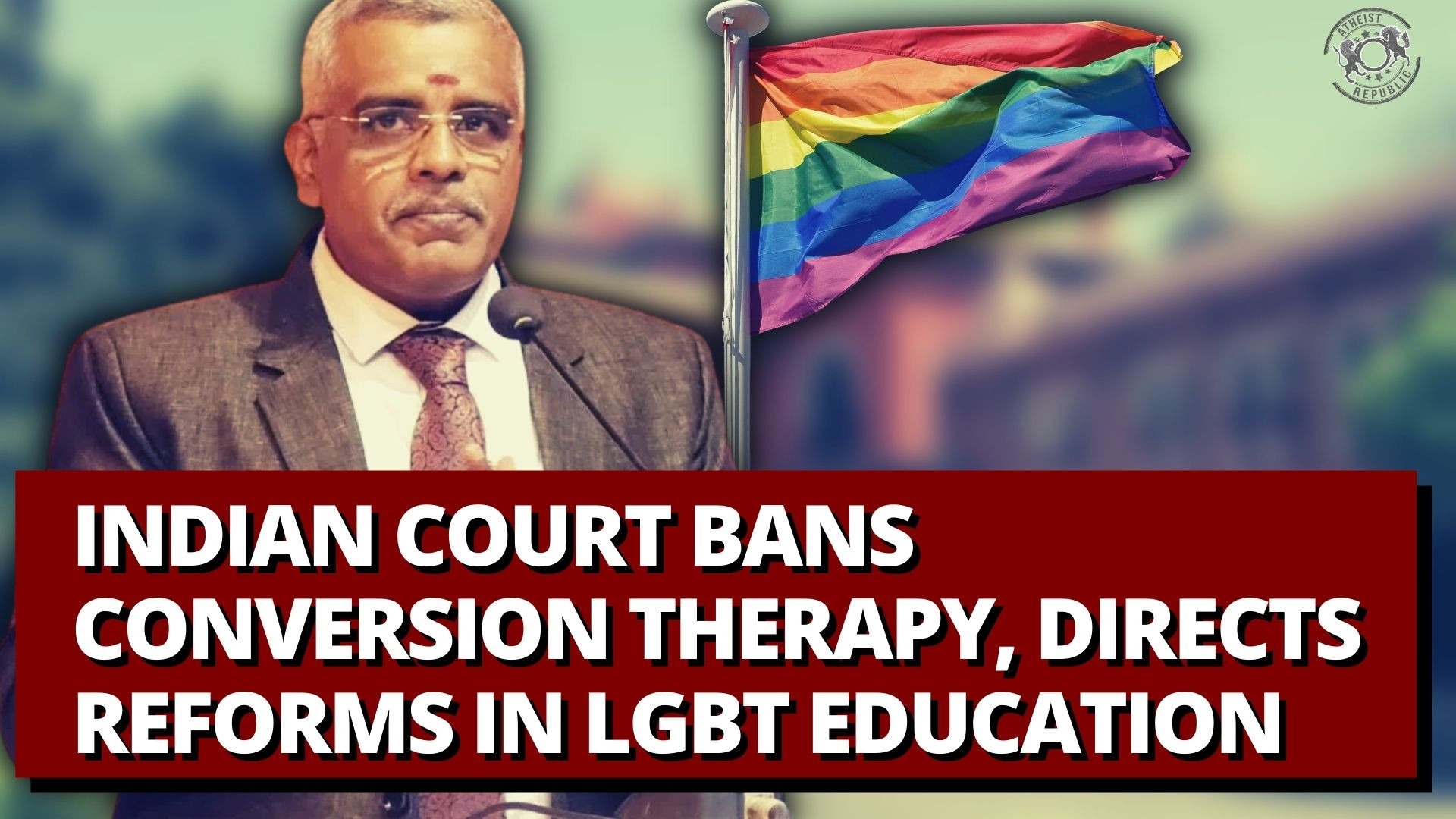
On June 7, the Madras High Court in the Indian state of Tamil Nadu banned any medical attempts to "cure" or change the sexual orientation of a person in a significant upholding of LGBTQIA+ rights in the state. The court has also issued directives to sensitize society and various branches of the state, including police and judiciary, to remove prejudices against them. In addition, the court directed several reforms in educational institutions.
Earlier this year, a case pertaining to two young women — who fled their homes in Madurai and recently reached Chennai after their families opposed the relationship between them — was brought to court. In March 2021, the Madurai police allegedly harassed an LGBTQ+ activist and trans man for sheltering the lesbian couple. The court ordered counseling to the couple's parents after they sought protection following threats from their parents.
Madras High Court Justice N. Anand Venkatesh said he would undergo "psycho-education" to understand same-sex relationships better and sought an appointment with a psychologist. "Ultimately, in this case, the words must come from my heart and not from my head, and the same will not be possible if I am not fully 'woke' on this aspect," the order said.
Having undergone the "psycho-education" session, Justice Venkatesh said, "Ignorance is no justification for normalizing any form of discrimination. The actual problem is not the fact that the law does not recognize a relationship but that the sanction that is accorded by the society is not available. It is only for this reason, I strongly feel that the change must take place at a societal level, and when it is complemented by a law, there will be a remarkable change in the outlook of the society by recognizing same-sex relationships. The LGBTQIA+ community cannot be left in a vulnerable atmosphere where there is no guarantee for their protection and safety."
In order to sensitize educational institutions regarding the LBGTQ+ community, the court enlisted the following measures:
- Parent Teachers Association (PTA) meetings should be used to sensitize parents on issues of LGBTQIA+ community and gender nonconforming students so as to involve families for support.
-
Necessary amendments should be made to policies and resources to include students belonging to LGBTQIA+ community in all spheres of school and college life. The following suggestions were issued:
- Ensure availability of gender-neutral restrooms for gender-nonconforming students.
- Change of name and gender on academic records for transgender persons.
- Inclusion of 'transgender' in addition to M and F gender columns in application forms for admission, competitive entrance exams, etc.
- Appointment of counsellors who are LGBTQIA+ inclusive, for the staff and students to address grievances, if any, and to provide effective solutions for the same.
- The appropriate government shall take effective steps to implement measures in relation to transgender persons as stipulated by Chapter VI of The Transgender Persons (Protection of Rights) Act 2019 and Rule 10 of the Transgender Persons (Protection of Rights) Rules 2020.
The court also issued the following interim directions to ensure safety and protection to LGBTQ+ community:
- The police, on receipt of any complaint regarding girl/woman/man missing cases which upon enquiry/investigation is found to involve consenting adults belonging to the LGBTQIA+ community, shall upon receipt of their statements close the complaint without subjecting them to any harassment.
- The Ministry of Social Justice & Empowerment (MSJE) has to enlist Non-Governmental Organisations (NGOs), including community-based groups which have sufficient expertise in handling the issues faced by the LGBTQIA+ community. The list of such NGOs, along with their address, contact details, and services provided, shall be published and revised periodically on the official website. Such details shall be published within eight weeks from the date of receipt of this order.
- Any person who faces an issue for the reason of their belongingness to the LGBTQIA+ community may approach any of the enlisted NGOs for safeguarding and protecting their rights.
- The concerned NGO, in consultation with the MSJE, shall maintain confidential records of such persons who approach the enlisted NGOs, and the aggregate data shall be provided to the concerned Ministry bi-annually.
- Such problems shall be addressed with the best-suited method depending on the facts and circumstances of each case be it counselling, monetary support, legal assistance with the support of District Legal Services Authority, or to coordinate with law enforcement agencies about offences committed against any persons belonging to the LGBTQIA+ community.
- With the specificity of issue of accommodation, suitable changes are to be made in existing short stay homes, Anganwadi shelters, and "garima greh" (shelter home for trans persons) to accommodate any and every member of the LGBTQIA+ community who requires shelters and/or homes. The MSJE shall make adequate infrastructural arrangements in this regard within a period of 12 weeks from the date of receipt of copy of this order.
- Such other measures that are needed for eliminating prejudices against the LGBTQIA+ community and channelising them back into the mainstream shall also be taken up.
- Sensitisation programmes to be conducted by the concerned Ministry of the Union/State Government (The judgment lists out an indicative list of sensitisation programmes).
